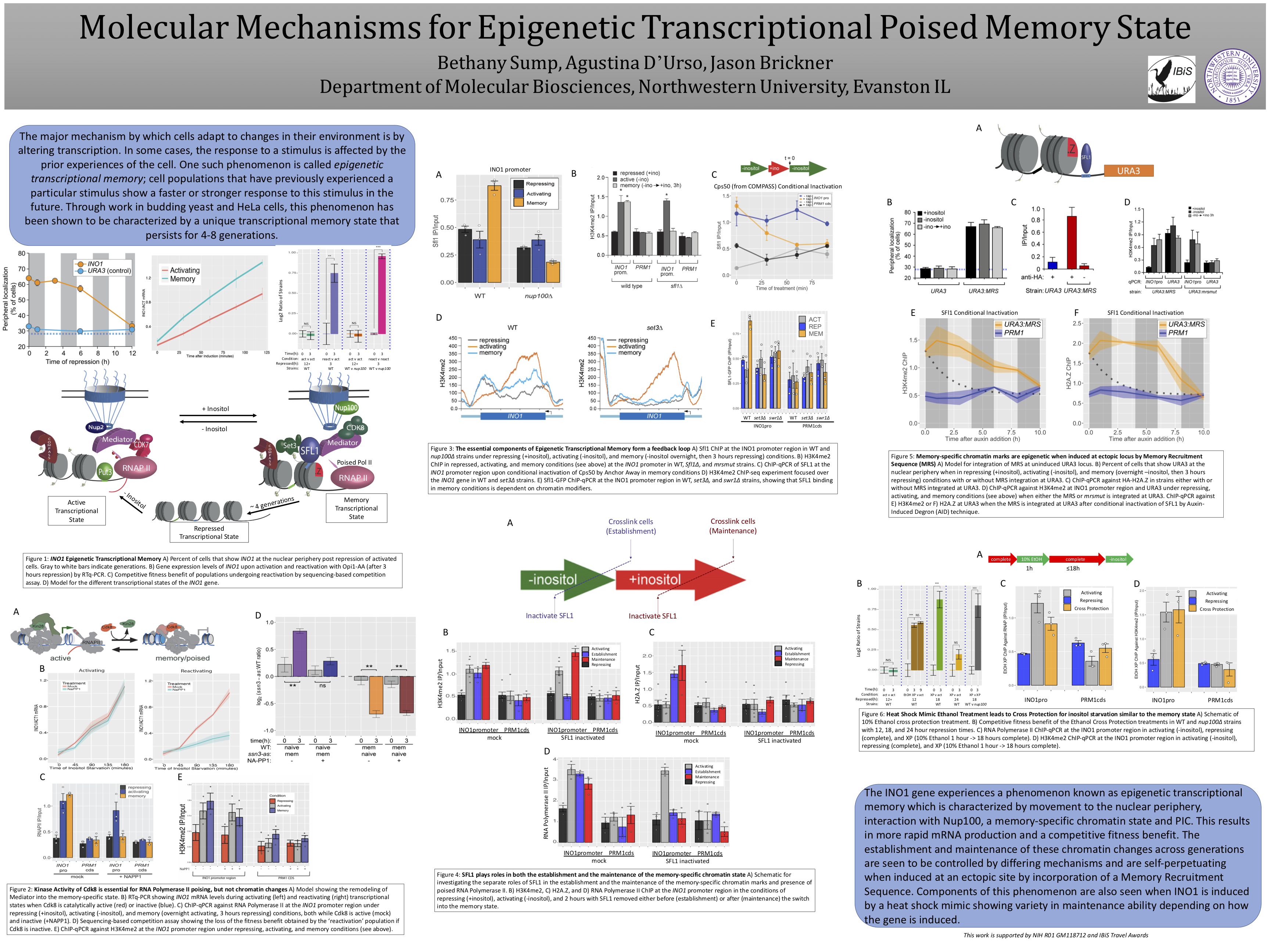Poster # 6
MOLECULAR MECHANISMS FOR EPIGENETIC TRANSCRIPTIONAL POISED MEMORY STATE
Authors: Bethany Sump, Northwestern University; Jason Brickner, Northwestern University
PRESENTER’S INFO:
Name: Bethany Sump
Email: bethanysump2022@u.northwestern.edu
Title: Student
Affiliation: Northwestern University
Department: Molecular Biosciences
Advisor: Jason Brickner
Advisor’s Email: j-brickner@northwestern.edu
Abstract: The major mechanism by which cells react to changes in their environment is by altering transcription. In some cases, the rate and mechanism of transcriptional regulation is affected for several generations by the prior experiences of the cell. This conserved phenomenon is known as epigenetic transcriptional memory and leads to more rapid induction of certain genes upon a subsequent challenge. The genes that exhibit this memory benefit can be characterized by their changes in chromatin structure and their recruitment of ‘poised’ RNA Polymerase II preinitiation complex (RNAPII PIC). Using the epigenetic memory of inositol starvation in budding yeast as a model, we find that the memory state of the INO1 and CHO1 genes requires a Nup100-dependent interaction with the NPC and a memory-specific transcription factor (TF). The interactions with the NPC and memory-specific TF also work in a feedback loop with chromatin modifications and modifiers that are specific to the memory state of the gene. Loss of any of these marks or interactions lead to a loss of the memory state. The chromatin changes allow recruitment of Cdk8+ Mediator and a poised form of RNAPII PIC. All of this leads to faster activation and a competitive fitness advantage. My current work dissects the mechanistic contributions of these factors to establishment, maintenance, and epigenetic inheritance of the memory state.
Poster: To download / open the poster as a PDF file in a new window click on the image below.
No Fields Found.

